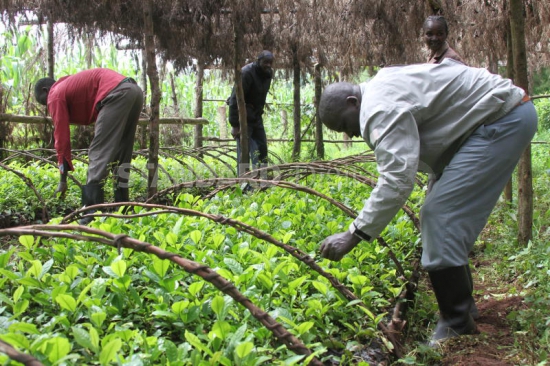×
The Standard e-Paper
Fearless, Trusted News

NANDI COUNTY: When a group of youth ventured into a tea seedlings project ten years ago, they had no idea it would transform their lives. The idea started as a simple seedlings nursery initially to benefit 41 members, but it has since turned into a money-making project.
The self-help group — Chaiyat ak Ketit — based in Sironoi, Nandi County has given hope to young people who would have otherwise been idle or engaging in criminal activities.